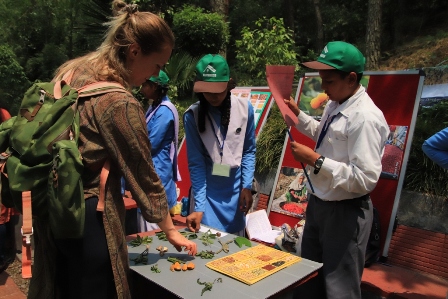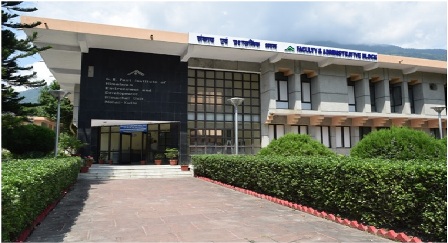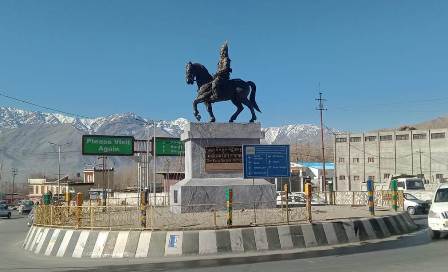Free Access: NERC provide library access free to local Students form Local universities and colleges
North-East Regional Centre (NERC)
- About
- Facilities
- Faculties
- Researchers
- Services
- Major Achievements
- Projects
- Publications
- Activities
- Contact Us
About the Centre
The North-East Unit of G.B. Pant National Institute of Himalayan Environment was set up in the year 1989 and started functioning from Chuchuyimlang, Mokokchung in Nagaland. In 1997, the Unit was shifted to Itanagar, Arunachal Pradesh and since then, the Unit has been meaningfully contributing to the cause of conservation and development of the entire NE region, which is known for its rich diversity, be it biological, socio-cultural, linguistic or ethnic. The biological and cultural richness of the region could be gauged from the fact that it harbours highest mammalian and avifauna diversity in India with more than 250 mammalian and 900 avifauna species, while according to Indian Red Data Book, 800 species of endangered flowering plants are reported from the region, which accounts to 55% of the country. Culturally, the region is home to more than 145 native tribes who along with other communities of the region speak about 220 dialects.
Unfortunately, the rich biodiversity of the region is currently facing various threats including degradation, deforestation, settlement expansion, indiscreet hunting, therefore, warranting to develop viable, replicable and effective community-based resource management initiatives to conserve it. The Unit, through wider networking with strategic partner institutions, credible NGOs, line departments of north-eastern states and others, and fruitful collaboration with international (UNDP, UNESCO, Mac-Arthur, ICIMOD, IUCN, etc.) and national (MoEF, DST, DBT, IIRS, NRSA, NATP, NEC, etc.) organisations, has been able to make an impact on the conservation of the biological resources and development of the culturally rich and unique ethnic communities of the entire region by implementing more than 35 R&D projects across the NE region. In the process, some of the critical issues like biodiversity conservation through CBNRM, shifting agriculture focussing on fallow management, technology development, dissemination and backstopping, documentation and validation of TEK, role of culture in biodiversity conservation and development, etc. are being addressed. The Unit has also contributed to inventory of biodiversity including ichthyo-faunal diversity, where two new species of cat fish Erethistoidessenkhiensis and Glyptothoraxdikrongensis, new to science have been discovered.
Collaborative Institutions
International
International Centre for Integrated Mountain Development (ICIMOD)
Government Organization
Arunachal Pradesh State Council for Science and Technology (AP-SCS&T), Itanagar (A.P.)
Government Organization
Rajiv Gandhi University, Doimukh (A.P.)
Government Organization
DeraNatung Govt. Collage, Itanagar (A.P.)
Government Organization
Department of Environment and Forest, Govt. of A.P.,Itanagar (A.P.)
Government Organization
State Forest Research Institute (SFRI), Govt. of A.P.,Itanagar (A.P.)
Government Organization
Department of Tourism, Govt. of A.P., Itanagar (A.P.)
Government Organization
Rain Forest Research Institute (RFRI), Jorhat (Assam)
Non-Government Organization
WWF India, Tezpur (Assam)
Non-Government Organization
Nature Care and Disaster Management Society (NCDAMS), Old Ziro, Lower Subansiri District (A.P.)
Non-Government Organization
Achukuru Welfare Society, Old Ziro, Lower Subansiri District (A.P.)
Non-Government Organization
Society for Environment Awareness and Conservation of Wildlife (SEACoW), Miao, Changlang District (A.P.)
Focal areas of activities
- People-centered land use models for shifting cultivation.
- Indigenous knowledge systems and natural resource management options for tribal communities.
- Biodiversity and Wildlife Conservation through Community Based Natural Resource Management.
-Appropriate low-cost technologies for improved livelihood in NE region.
-Environmental assessment of developmental initiatives in NE region.
-Planning and Development of rural life in North East India.
Vision
-Capacity Building and Awareness on Low-Cost technologies and alternate livelihoods.
-Rural development through sustainable livelihoods.
-Biodiversity conservation and integrated landscape development.
-Water security through eco-system management.
-Guidelines, Action Plans, and Policy Documents of regional relevance.
-
Objectives
-Conduct in-depth research and development on various environmental issues in North-East India.
-Identify and strengthen local knowledge of the environment through interactive networking and strengthen regional relevance research in scientific institutes, universities / NGOs and voluntary organizations working in the North-East Indian region.
-Demonstrate appropriate technical packages and delivery systems for sustainable development in Northeast India in line with local perceptions.
-Environmental awareness building to local people of North-East India through training, demonstration and knowledge products.
Facilities
Laboratory
Well equipped with instruments like Flame Photometer,Gas Chromatography , Spectrophotometer
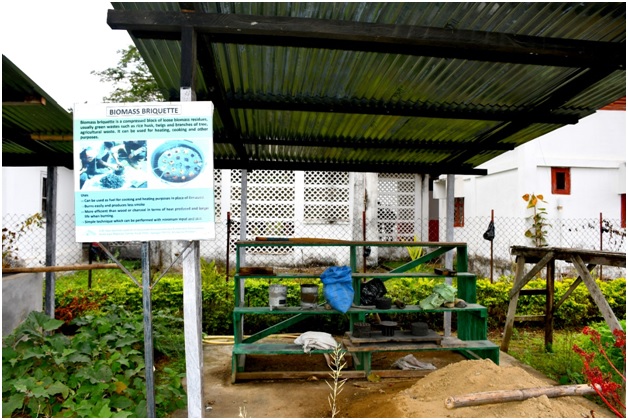
Demonstration Sites
Demonstration Sites for low-cost technologies.
Library
A well maintained study area for scholars with hundreds of books
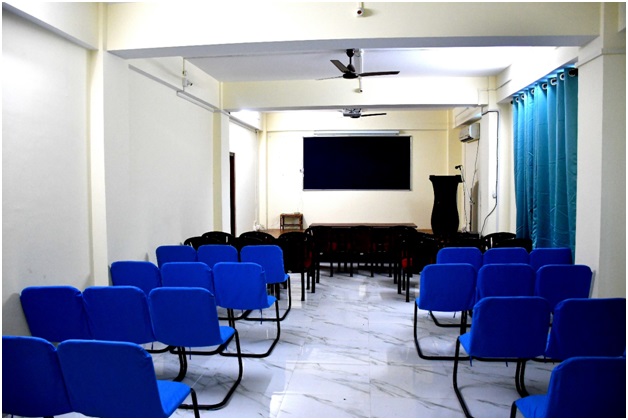
Conference Room
For organizing varoious knowledge full events
Faculties
Scientist-E

Dr. Devendra Kumar
Scientist C
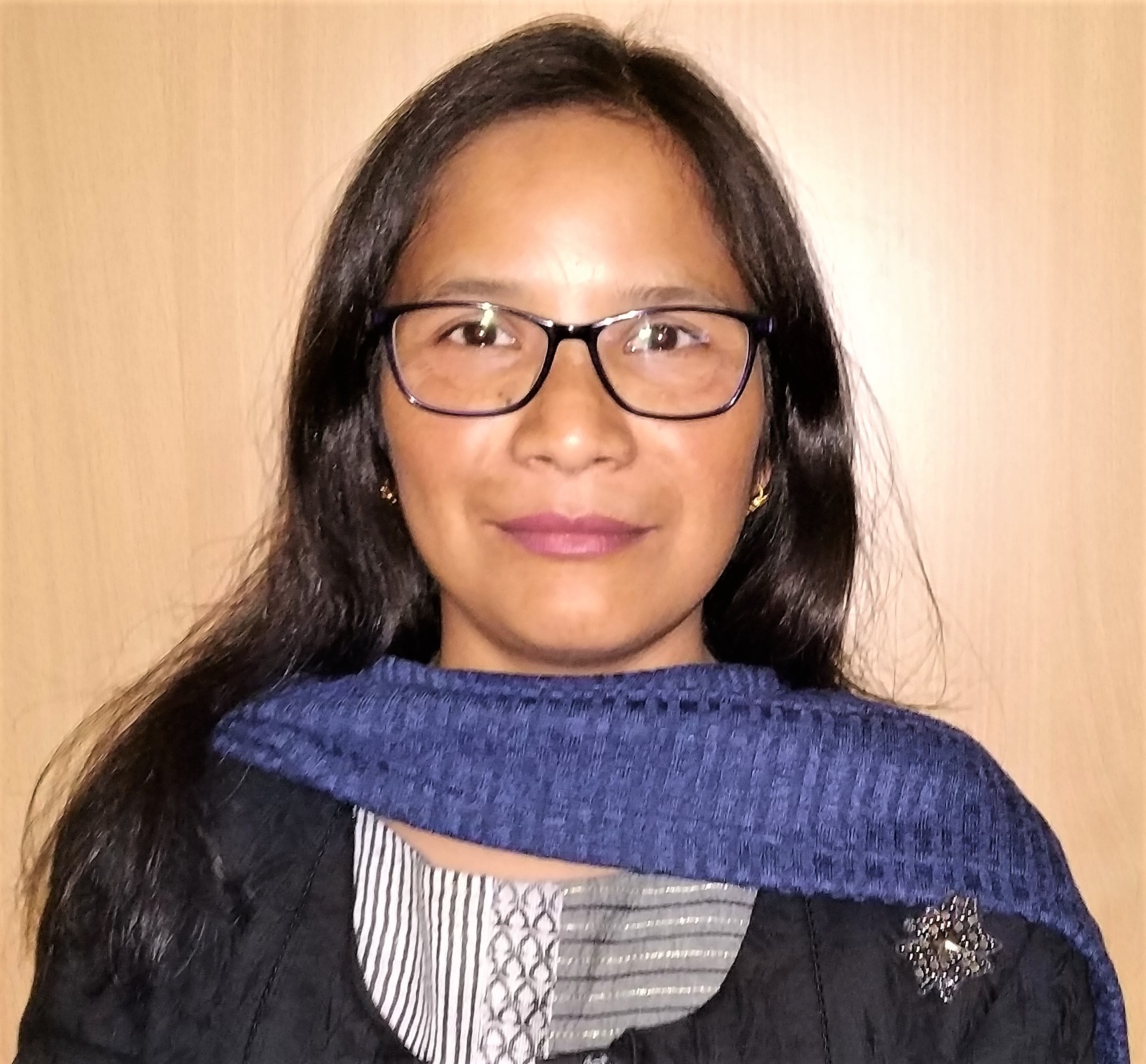
Dr. Wishfully Mylliemngap
Scientist C

Er. Tridipa Biswas
Designation: Scientist C
Discipline: Geography ; Remote Sensing & GIS ;
Email Id: tridipabiswas@gmail.com
Scientist-C

Dr. Mriganka Shekhar Sarkar
Technical Assistant-II

Dr. Ranjeet Singh
Designation: Technical Assistant-II
Discipline: Biodiversity Conservation and Management ;
Email Id: ranaranjeet92@yahoo.com
Researchers
Project Coordinator

Dr. Diana Ethel Amonge
Designation: Project Coordinator
Discipline: Wildlife Biology, Forestry Read more
Email Id: dianaamonge5@gmail.com
Himalayan Junior Project Fellow

Ms. Chandamita Das
Designation: Himalayan Junior Project Fellow
Discipline: Ecology, Wildlife Biology
Email Id: chandamitadas40@gmail.com
Research Officer

Dr. Prem Ranjan
Designation: Research Officer
Discipline: Soil and Water Conservation Engineering Read more
Email Id: prem009ranjan@gmail.com
Junior Project Fellow

Ms. Kajoli Begum
Designation: Junior Project Fellow
Discipline: Environmental Sciences (Remote sensing and GIS) Read more
Email Id: kajolikhan93@gmail.com
Junior Project Fellow
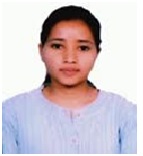
Ms. Apeksha Bisht
Designation: Junior Project Fellow
Discipline: Geology, GIS
Email Id: apeksha399@gmail.com
Junior Project Fellow

Mr. Bishal Kumar Majhi
Designation: Junior Project Fellow
Discipline: Zoology, Ecology, Wildlife Read more
Email Id: bishalkm@gmail.com
Project Intern

Ms. Kago Puniya
Designation: Project Intern
Discipline: Sociology, Social Sciences
Email Id: kagopunya2@gmail.com
Services
Library
Laboratory
Laboratory Access: Provide laboratory access free to local students and researchers from partner organizations/ local stakeholders.
Advisory Services
Advisory services Provide advisory services to local partner organizations/ stakeholders.
Rural Technology Complex
Provide access to Rural Technology Center (RTC) of NERC to partner organizations/ stakeholders for demonstration, training, and teaching.
Major Achievements
Up Scaling of Technology Dissemination
Up scaling of technology dissemination and backstopping in five states the NE region with the help of seven Partner NGOs.
Institutionalizing technology backstopping & capacity enhancement
Institutionalizing technology backstopping & capacity enhancement for sustainable agricultural development and encouraging entrepreneurship development based on simple rural technologies within the tribal areas of North East India.
Exploring Eco-Tourism Potential
Exploring eco-tourism as a potential tool for biodiversity conservation and sustainable livelihood in Indian Himalayan Region.
Preparation of Plans
Preparation of Wildlife management plan / Biodiversity conservation plan for Trans Arunachal Highways.
Documentation of Policies
Documentation of policies and laws including land tenure systems for comprehensive study of shifting agriculture in the NE States of India and Suggest measures to make it ecologically, economically and socially viable.
Shifting Cultivation
Shifting agriculture: issues and options with focus on adaptive interventions to make it ecologically, economically and socially viable.
Land use development
People centered land use development in the shifting agriculture affected areas in Arunachal Pradesh.
Documentation of Fallow management practices
Documentation of Fallow management practices among the Tanguiles of Ukhrul District, Manipur in their Two year plus Shifting Cultivation Systems.
Biodiversity Conservation
Biodiversity Conservation through community based natural resource management in Arunachal Pradesh.
Exploring cultural landscape
Exploring cultural landscape as the basis for l biodiversity conservation linking it with sustainable development of Arunachal Pradesh, India.
Development of baseline information and identification of potential corridors
Development of baseline information and identification of potential corridors for Namdapha National Park (Tiger Reserve) and Mouling National Park, in North East Region.
Ichthyofaunal Diversity
Ichthyofaunal diversity of rivers of NE region.
Strategic Environmental Assessment (SEA)
Strategic Environmental Assessment (SEA) of Hydropower Projects in the Indian Himalayan Region.
Understanding biodiversity patterns and processes
Understanding biodiversity patterns and processes under changing resource use and climate scenario in Indian Himalaya – ecological and social implications.
Strengthening the practice of shifting cultivation
Strengthening the practice of shifting cultivation with appropriate scientific and technological interventions within the traditional framework of Jhum in Nagaland.
Introduction of four SALT models
Introduction of four SALT models in demonstration plots using N2 fixing species in Nagaland and Arunachal Pradesh; Establishment of demonstration models on appropriate technologies for soil conservation and farming systems in Arunachal Pradesh.
Impact of CHFST on the land capability
Impact of CHFST on the land capability restoration in upland agriculture; impact of multipurpose contour hedgerow on crop productivity and soil fertility in shifting agricultural lands.
Designing, developing and testing sustainable natural resource management
Designing, developing and testing sustainable natural resource management through appropriate technologies for soil conservation farming system technology.
Assessment of agricultural production and strategy for sustainable development
An assessment of agricultural production and strategy for sustainable development of bioresources by identifying issues and options for improving livelihood of marginalized farmers in shifting cultivation areas in North-East India.
Biodiversity characterization of landscape level
Biodiversity characterization of landscape level through Remote Sensing and other GIS in Arunachal Pradesh.
Preparation of location map
Preparation of location map of proposed Tsangyang Gyatso - World Peace Park/ Biosphere Reserve.
Inventorization of the NTFPs
Inventorization of the NTFPs for seven states of NE India.
Inventorization of floristic diversity
Inventorization of floristic diversity of north east India and development of biodiversity indices; Inventorisation of rare, endangered and threatened, and endemic elements of NE India has also been done.
Identification of traditionally utilized potential soil nutrient enhancement resources
Identification of traditionally utilized potential soil nutrient enhancement resources for different land use practices in selected watersheds of Arunachal Pradesh.
Documentation of traditional soil and water conservation (SWC) practices
Documentation of traditional soil and water conservation (SWC) practices among the tribes of Arunachal Pradesh; Estimation of runoff and soil loss was done at selected villages in Senkhi watershed in Papumpare district in Arunachal Pradesh.
Documentation of indigenous knowledge systems
Documentation of indigenous knowledge systems of different tribal communities including documentation of traditional pest management practices.
Projects
Ongoing
Water Security in Himalaya through Spring-Ecosystem Assessment and Management.
Community driven eco-smart model village development to improve livelihoods and foster ecological security in the Himalaya.
Fostering Climate Smart Communities in the Indian Himalayan Region (IHR).
The Landscape Initiative for Far Eastern Himalayas (HI-LIFE)
Completed
Anthropogenic impacts and their management options in different ecosystem of Indian Himalayan Region
Enhancing eco-cultural livelihoods in biodiversity rich areas of Arunachal Himalaya.
Assessment of floral biodiversity & resource utilization pattern with Special reference to climate change in high altitude wetlands of Arunachal Pradesh of Eastern Himalaya
Rejuvenation of springs and spring-fed streams in Mid-Himalayan Basins using spring sanctuary concept
Assessment of biochemical and phytochemical content of selected threatened and high value plants with diverse environmental conditions
Research Articles
Diversity, Utilization pattern and indigenous uses of useful plant resources in Nanda Devi Biosphere Reserve, West Himalaya, India.
International Journal of Environmental Sciences, 2019
Rarity and Prioritization of Species for Conservation and Management in alpine meadows of Nanda Devi Biosphere Reserve, West Himalaya, India.
International Journal of Life Sciences, 2019
Emerging patterns in global and regional aerosol characteristics: A study based on satellite remote sensors
Journal of Atmospheric and Solar-Terrestrial Physics, 2019
Extended distribution record of two bellflower species of Codonopsis (Campanulaceae) from the Indian state of Arunachal Pradesh
Journal of Threatened Taxa, 2019
Extended distribution record of two bellflower species of Codonopsis (Campanulaceae) from the Indian state of Arunachal Pradesh
Journal of Threatened Taxa, 2019
Plant diversity, net primary productivity and soil nutrient contents of a humid subtropical grassland remained low even after 50 years of post-disturbance recovery from coal mining
Environmental Monitoring and Assessment , 2019
Wild edible plants used by the ethnic communities of Shi Yomi District of Arunachal Pradesh, India.
Pleione, 2019
Integrating geospatial tools and species for conservation planning in a data-poor region of the Far Eastern Himalayas.
Geology, Ecology, and Landscapes, 2019
Climate change impact on plant biodiversity of Arunachal Himalaya: a review
Bulletin of Arunachal Forest Research, 2018
Plant Diversity Assessment and Prioritization of Communities for Conservation in Milam Alpine area of Nanda Devi Biosphere Reserve, West Himalaya.
International Journal of Environmental Sciences, 2018
Biodiversity research trends and gaps from the confluence of three global biodiversity hotspots in the Far-Eastern Himalaya.
International Journal of Ecology, 2018
Ethnomedicinal plants used by Galo community of West Siang district, Arunachal Pradesh.
International Journal for Research in Applied Science and Engineering Technology, 2018
Climate change impact on plant biodiversity of Arunachal Himalaya: A review. Bulletin of Arunachal Forest Research Journal
Bulletin of Arunachal Forest Research Journal, 2018
Extended distributional record of Plants from the state of Arunachal Pradesh, India.
Journal of Threatened taxa Journal of Threatened Taxa, 2018
Gentiana urnula Harry Sm. (gentianaceae), a new record for flora of Arunachal Pradesh.
Journal of Threatened taxa, 2018
Ethnobotany and nutritional importance of four selected medicinal plants from Eastern Himalaya, Arunachal Pradesh.
Journal of Medicinal Plant, 2017
Assessment of vegetation and prioritization of communities for conservation in Latakharak alpine meadows of Nanda Devi Biosphere Reserve, West Himalaya, India
International Journal of Advanced Research, 2017
Wild edible and medicinal plants used by Apatani community of Lower subansiri district, Arunachal Pradesh, India.
International Journal of Current Research in Biosciences and Plant Biology, 2017
Climate Change Impact on Forest and Biodiversity of Indian Eastern Himalaya: An Overview.
International Journal of Advance Engineering and Research Development, 2017
Conservation & Management of High-Altitude Wetlands of Eastern Himalaya.
Echo of Arunachal, 2017
Activities
NIHE's Special Lecture Series - 7th lecture delivered by Dr. D. K. Upreti, FNA, FNASc, Former Director, CSIR-NBRI, Lucknow on "Lichens as a tool to monitor environmental pollution and climate change". Read more ( 20th Dec 2023)

On the occasion of “Azadi ka Amrit Mahotsav”, the Northeast Regional Centre (NERC) of the Institute organized an exhibition of its research outcomes and success stories in the form of knowledge products such as books, research papers, posters, brochures etc. Read more ( 24th Dec 2021)

Seventh Popular Lecture on the occasion of Annual Day 2021 ( 10th Sep 2021)

Workshop on 'Nature Photography' ( 19th Mar 2021 -20th Mar 2021)

Certificate Course on People’s Biodiversity Register Management ( 18th Jan 2021 -21st Jan 2021)

Certificate Course on Participatory Rural Appraisal(PRA) tools and techniques with special emphasis on village resource mapping ( 12th Jan 2021 -13th Jan 2021)

Certificate Course on Para- Hydrology-with special reference to spring rejuvenation ( 8th Dec 2020 -10th Dec 2020)

Training on 'BMC and PBR preparation' ( 8th Mar 2020)

Training on 'Low cost vermi-composting' ( ( 16th Feb 2020)




